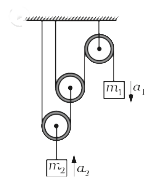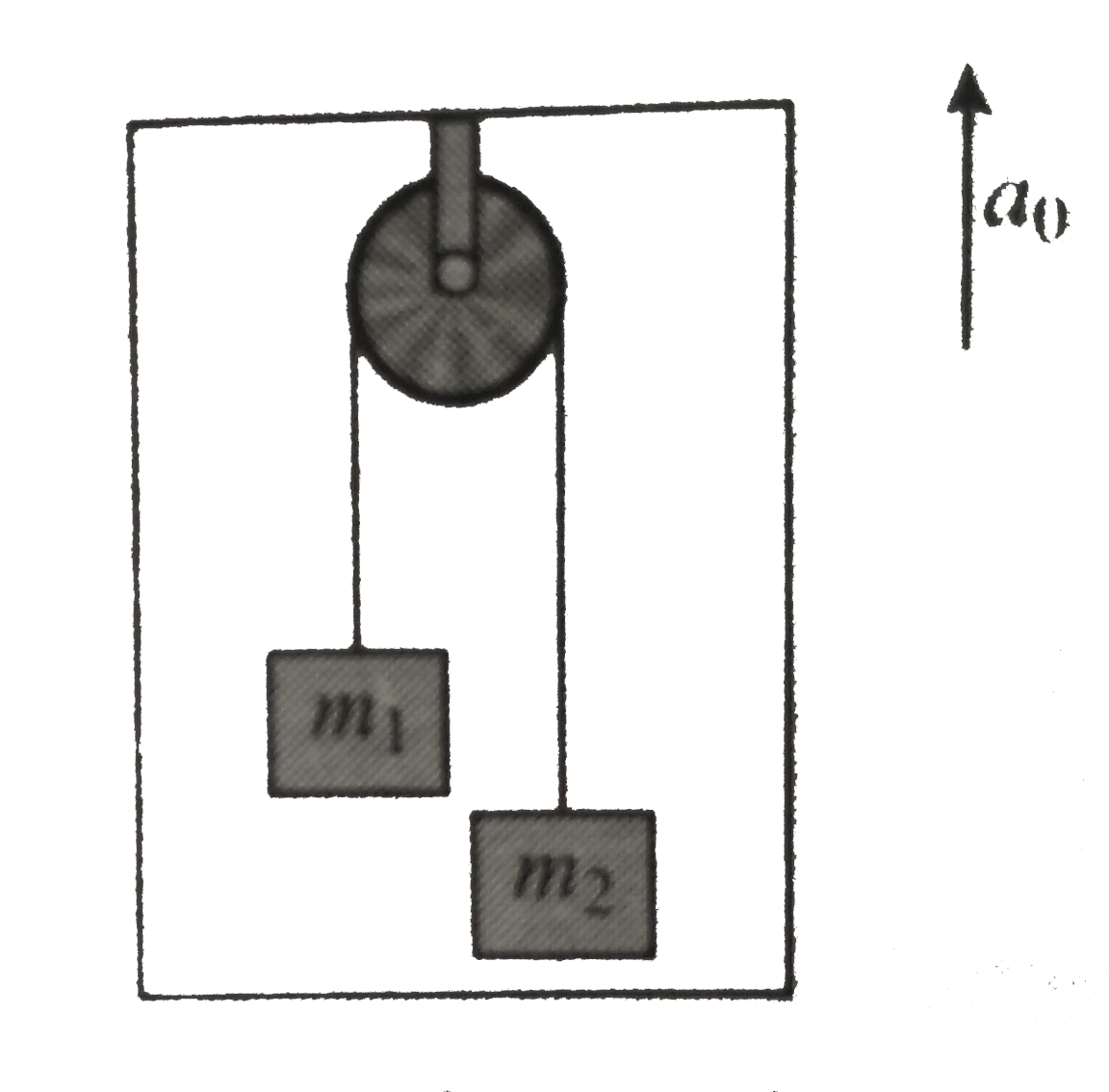a. If the velocity of a body is zero, does it mean that its acceleration is also zero ? (Yes//No)
b. If the acceleration of a body is zero does it mean that its velocity is also zero ? (Yes//No)
c. If a body travels with uniform acceleration a1 for a time t2 thenthe average acceleration is given by
aav=a1t1+a2t2t1+t2(Yes/No)<br>d.Ifabody⋆tsomrestandmoveswithuniformae≤rationthedisplacemectsofthebodyis1 s,<br>2 s, 3 s,etc.,are∈therationof(1:4:9),etc.(True/False)
e. For a body moving whith uniform acceleration, the displacent of the bosy in successive seconds is in the ration of 1:3:5:7.........................(True//False) .
(a) No, if the velocity of a body is zero, there may be acceleration in the body. For example, a body is zero, a body at its heighst point during vertical motion.
(b) No, if the accleration of a body is zero, its velocity may be constant or zero.
(c) Yes, change in velocity =acceleration× time, and average acceleration =change in velocity //time
(d) True, here u=0,s=ut+12at2=12at2⇒s∝t2
(e) True, Dn=u+a2(2n−1)⇒Dn∝(2n−1).
Topper's Solved these Questions
- BOOK - CENGAGE PHYSICS ENGLISHCHAPTER - KINEMATICS-1EXERCISE - Exercise 4.212videos
KINEMATICS-1
- BOOK - CENGAGE PHYSICS ENGLISHCHAPTER - KINEMATICS-1EXERCISE - Exercise 4.315videos
KINEMATICS-1
- BOOK - CENGAGE PHYSICS ENGLISHCHAPTER - KINEMATICS-1EXERCISE - Solved Examples9videos
KINEMATICS-1
- BOOK - CENGAGE PHYSICS ENGLISHCHAPTER - GRAVITATIONEXERCISE - INTEGER_TYPE1videos
GRAVITATION
- BOOK - CENGAGE PHYSICS ENGLISHCHAPTER - KINEMATICS-2EXERCISE - Exercise Integer9videos
KINEMATICS-2
Similar Questions
Knowledge Check
- Question 1 - Select One
A car starts from rest moves with uniform acceleration a1 for t1 second and then retards uniformly at a rate a2 for t2 second. Then t1/t2 is equal to
Aa1/a2Ba2/a1Ca22/a1D2a1/a2
A uniform round object of mass M, radius R and moment of inertia about its centre of mass Icm has a light, thin string wrapped several times around its circumference. The free end of string is attaced to the celling and the object is released from rest. Find the acceleration of centre of the object and tension n the string. [ Take IcmMR2=k]
View SolutionA body is moving with variable acceleartion (a) along a straight line. The average acceleration of body in time interval t1 to t2 is :-
View SolutionFind the relation between acceleration a1 and a2
 View Solution
View SolutionThe displacement of a particle is given by
x=a0+a1t3−a2t22
where a0,a1 and a2 are constants. What is its acceleration ?View SolutionCan a body have zero velocity and finite acceleration?
View SolutionIf the pulley is massles and moves with an upward acceleration a0. Find the acceleration of (m1)and(m2) w.r.t to elevator.
 View Solution
View SolutionThe velocity v of a body moving along a straight line varies with time t as v=2t2e−t, where v is in m/s and t is in second. The acceleration of body is zero at t =
View Solution

